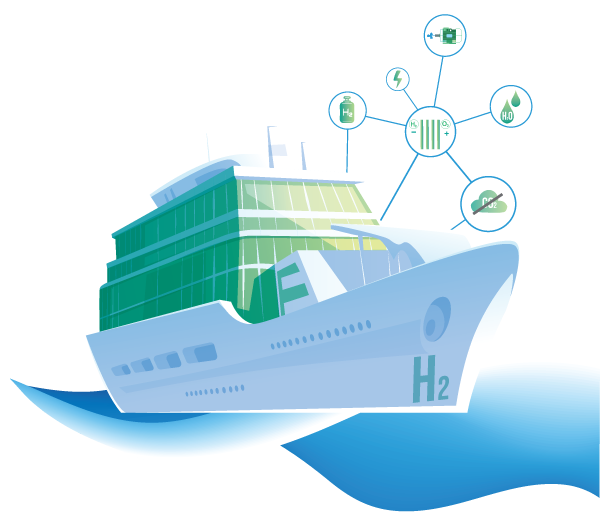Hydrogen is the next big wave in the maritime sector
The maritime passenger transport industry plays a key role in the development of a competitive and resource efficient transport system in the European Union (EU).

Recently, the International Maritime Organization (IMO) has adopted a strategy to reduce international shipping emissions by 50% up to 2050, compared to 2008. This bring new opportunities towards the adoption of carbon-free fuels, with the hydrogen being the most promising. Given the fleet growth up to 2050 and the needs for a global maritime transportation, the reduction of CO2 emissions demands indeed novel energy efficient technologies, which other commonly used fuels can only support to some extent.
International standards and rules to certify safety on-board and environmental safety standards of hydrogen-based fuels ships, however, are not yet available in the context of passenger transport.
The e-SHyIPS project aims to define the new guidelines for an effective introduction of hydrogen in maritime passenger transport sector and to boost its adoption within the global and EU strategy for a clean and sustainable environment, towards the accomplishment of a zero-emission navigation scenario.
Through an ecosystem approach, where all the main stakeholders from maritime and hydrogen sectors, research and industry will be involved, the e-SHyIPS project will integrate theoretical pre-normative research activities on standards with simulation and laboratory experiments, in order to provide the needed knowledge to design an appropriate certification process and spot future standardization activities to enhance the EU normative and regulatory landscape.
The goal of the e-SHyIPS project is to move from the idea to the application, such as to fill the existing gap in normative and technical knowledge concerning all the related aspects on hydrogen in the maritime transport sector.
More information about the project can be found at the project website.
